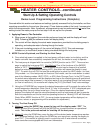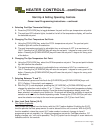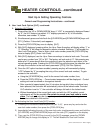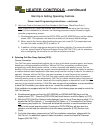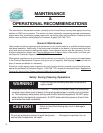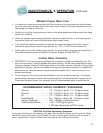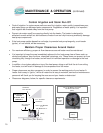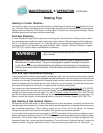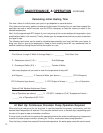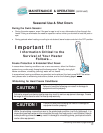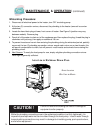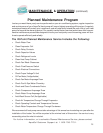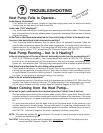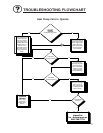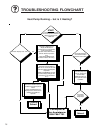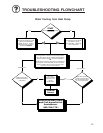
22
Calculating Initial Heating Time
The time it takes to initially warm your pool or spa depends on several factors.
First, determine how many gallons of water are to be heated. Knowing this, you can then compute the
equivalent pounds of water involved, and the BTU's necessary to heat the volume of water to the
desired temperature.
Next, find the approximate BTU output of your heat pump at the current ambient air temperature (see
specifications table in this manual). Finally, decide upon the temperature at which you plan to maintain
your pool or spa.
The following work sheet can be used to calculate approximately how long it will take your heater to
bring your pool or spa up to temperature. Keep in mind heating times will vary somewhat due to
weather conditions during the period that the heater is in use.
When starting a heat pump for the first time, it must be permitted to operate, continuously, until the
desired water temperature is attained. This may take several hours, to several days, depending upon
the size of the pool or spa and weather conditions.
If a time clock or similar device controls the operating times of the water circulating pump, temporarily
override the water pump controller, allowing for 24-hour, continuous water pump operation.
Once the body of water has reached the desired temperature, the water pump controller can be reset.
At Start Up: Continuous Circulator Pump Operation Required
Pool Volume (Length X Width X Average Depth) = _________ Pool Cubic Feet
X Gallons per cubic ft.(7.5) = _________ Pool Gallonage
X Pounds per Gallon (8.3) = _________ Pounds of Water
How many degrees do you want to raise the temperature of the pool?
# of Degrees _________ X Pounds of Water (per above) = __________ BTU’s Required
BTU’s Required (per above) ________
÷ BTU Output of Heater = ______ Hrs. of Operation
Optional Cold Weather Adjustment Factor:
Hrs. of Operation (per above) ______ X 1.25 (60º F outside air (O.A.) Temperature Factor) =
______Hrs. of Operation at 60º F O.A.
MAINTENANCE
& OPERATION (continued)



